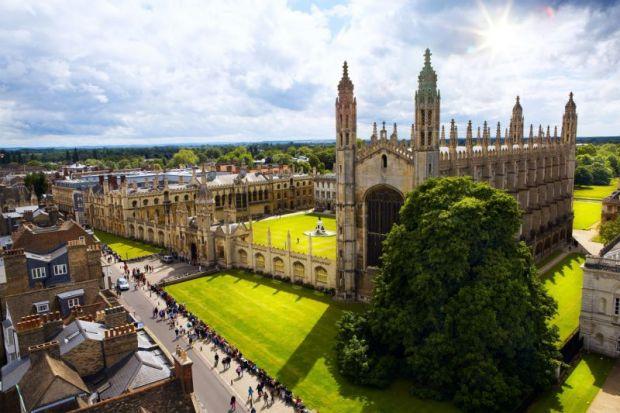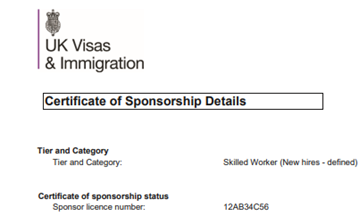Conservation Professionals, classified under SOC Code 2151, are dedicated environmental specialists who play a crucial role in safeguarding biodiversity and managing natural resources. Their responsibilities encompass a wide range of activities aimed at conserving ecosystems and promoting sustainability. Key aspects of their role include:
- Implementation of Biodiversity Action Plans: Promoting and executing local and national strategies to protect threatened species and habitats.
- Environmental Assessments: Conducting environmental impact assessments and field surveys to evaluate the health of ecosystems.
- Habitat Management: Implementing, evaluating, and monitoring conservation schemes for the management and protection of natural habitats.
- Advisory Role: Providing expert advice and information to government bodies at both national and local levels, as well as to clients, landowners, planners, and developers to support environmental protection efforts.
- Collaboration: Working alongside various groups to select and maintain the Protected Site System, including Special Areas of Conservation (SACs), Ramsar sites, Sites of Special Scientific Interest (SSSIs), and National Nature Reserves (NNRs).
- Policy Knowledge: Maintaining and developing expertise in relevant policy areas within a national and European legislative framework.
- Education & Advocacy: Promoting conservation issues through educational talks, displays, workshops, and literature, while also liaising with the media for greater outreach.
- Funding Applications: Preparing and submitting funding applications to support conservation initiatives and assessing applications from other organizations.
- Research: Conducting research into various aspects of the natural world to inform conservation practices.
As the importance of conservation to global sustainability continues to rise, the demand for skilled conservation professionals is increasingly critical. This guide aims to assist HR professionals in navigating the hiring and sponsoring process for conservation professionals under the UK’s immigration system.
What is SOC Code 3411 for Conservation professionals?
SOC Code 2151 refers to conservation professionals who work to promote and implement biodiversity action plans while safeguarding natural environments. Their responsibilities can include:
- Promoting biodiversity action plans: Implementing local and national initiatives focused on threatened species and habitats.
- Conducting environmental assessments: Carrying out environmental impact assessments and field surveys to evaluate the state of ecosystems.
- Managing natural habitats: Implementing, evaluating, and monitoring schemes designed for the protection and management of natural habitats.
- Advising stakeholders: Providing information and guidance to government entities at both national and local levels, landowners, planners, and developers to ensure environmental protection.
- Liaising with conservation groups: Collaborating with various organizations in the selection and maintenance of the Protected Site System, including Special Areas of Conservation (SACs), Ramsar sites, Sites of Special Scientific Interest (SSSIs), and National Nature Reserves (NNRs).
- Staying informed on policy: Maintaining and developing expertise in relevant policy areas within a national and European legislative context.
- Educating the public: Promoting conservation issues through educational talks, displays, workshops, literature, and media engagement.
- Securing funding: Preparing and assessing applications for funding from other organizations to support conservation projects.
- Conducting research: Engaging in research activities to explore various aspects of the natural world.
Conservation professionals play a pivotal role in the protection and management of biodiversity, ensuring the sustainability of ecosystems and the preservation of natural heritage.
Eligibility to Hire Conservation professionals (SOC Code 3411)
1. Job Requirements
Conservation professionals must demonstrate expertise in biodiversity management and environmental protection, meeting specific qualifications or experience criteria. These may include:
- Educational Background: A degree in environmental science, ecology, conservation biology, or a related field is typically required.
- Experience in Conservation: Proven experience in implementing biodiversity action plans and conducting environmental impact assessments and field surveys.
- Knowledge of Policy: Strong understanding of relevant national and European legislation affecting conservation efforts, as well as local biodiversity strategies.
- Advisory Skills: Ability to provide informed advice to government entities, landowners, and developers pertaining to the protection of natural environments.
- Collaborative Skills: Experience in liaising with various stakeholders, including governmental and non-governmental organizations, regarding the selection and maintenance of protected sites such as SACs, Ramsar sites, and SSSIs.
- Public Engagement: Experience in promoting conservation issues through educational initiatives, public talks, and media interactions.
- Research Abilities: Proven capability to conduct research related to the natural world and apply findings to conservation efforts.
- Grant Writing Skills: Proficiency in preparing and assessing applications for funding from various organizations to support conservation initiatives.
Ensure that the job description aligns with SOC Code 2151 and that the conservation professional's experience and work meet the expectations for the role.
- Salary Thresholds
- Use the Minimum Salary Calculator to ensure your salary offer meets immigration requirements.
Sponsoring Conservation professionals: A Step-by-Step Guide for HR Professionals
Once you’ve confirmed that the role and candidate meet the eligibility requirements, follow this step-by-step guide to sponsoring Conservation professionals under SOC Code 2151.
Step 1: Obtain a Sponsor Licence
Before hiring non-UK Conservation professionals, your company or institution must obtain a sponsor licence. This licence enables you to legally sponsor overseas Conservation professionals under the Skilled Worker Visa program.
- Sponsor Licence Application: Submit documentation proving that your business is legitimate and has a genuine vacancy. Visit the sponsor licence application guide for more information.
- Sponsor Licence Fees: Small businesses typically pay £574, while larger institutions pay £1,579. For more information, visit the sponsor licence fees guide.
- Processing Time: Applications typically take up to 8 weeks, but using the Sponsor Licence Priority Service can reduce the processing time to 10 working days.
Once your sponsor licence is approved, you will receive a sponsor licence number, which allows you to assign Certificates of Sponsorship (CoS).
Step 2: Assign a Certificate of Sponsorship (CoS)
Once you have your sponsor licence, the next step is to assign a CoS to the Conservation professionals. This document provides key details about the job and the individual being sponsored.
- Defined vs Undefined CoS: Use a Defined CoS for Conservation professionals applying from outside the UK, and an Undefined CoS for those already in the UK. Learn more in the Defined & Undefined Certificates of Sponsorship guide.
- Required Documents: Provide details such as the Conservation professionals’s portfolio, passport and job offer. Refer to Documents Required for Certificate of Sponsorship for a full list of necessary documents.
Step 3: Apply for the Skilled Worker Visa
Once the CoS is issued, the Conservation professionals can apply for the Skilled Worker Visa.
- Visa Fees: Fees vary depending on the role and visa length—use the visa fees calculator to estimate the costs.
- Immigration Skills Charge: Employers are required to pay this charge as part of sponsoring non-UK workers. This is separate from visa fees.
Conducting a Right to Work Check for Conservation professionals
Before the Conservation professionals begins working, you must conduct a right to work check to ensure they are legally allowed to work in the UK.
- Manual Right to Work Check: Verify original documents such as the Conservation professionals’s passport and visa.
- Online Right to Work Check: If the Conservation professionals holds an eVisa, you can use the UK government’s online system to verify their right-to-work status.
For more details on how to perform these checks, see the right to work check guide.
Post-Hiring Responsibilities and Compliance
- Record-Keeping and Reporting
- Record-Keeping: Maintain accurate and up-to-date records of the Conservation professionals’s employment details, salary and contact information.
- Reporting Changes: Report any significant changes to the Conservation professionals’s role—such as promotions or salary increases—via the Sponsor Management System (SMS).
- Sponsor Licence Duties and Compliance
- Failure to comply with your sponsor licence duties can result in penalties or sponsor licence revocation, impacting your ability to sponsor future Conservation professionalss.
How Borderless Can Help with Sponsoring Conservation professionals
Sponsoring Conservation professionals under SOC Code 2151 can be a complex process, but Borderless can simplify it for you. We offer comprehensive support to help you manage the entire sponsorship process.
End-to-End Sponsorship Support
At Borderless, we assist with:
- Sponsor Licence Application: Guiding you through the application process and ensuring all required documents are submitted correctly.
- Certificate of Sponsorship Assignment: Streamlining the CoS process to make hiring easier.
- Compliance Management: Helping you stay compliant with immigration laws to avoid penalties.
If you need assistance with hiring or sponsoring Conservation professionals, get in touch for personalised support.
Conclusion
Hiring and sponsoring Conservation professionals under SOC Code 2151 can be a rewarding way to enrich the cultural landscape of your organisation. By following the steps outlined in this guide, you can successfully navigate the sponsorship process while ensuring compliance with UK immigration laws.
For further guidance, Borderless is ready to assist you with all your sponsorship needs. Contact us for expert advice.
Automate Home Office Audits with Borderless
The Borderless platform provides a centralized system for all sponsorships, automating reminders for key tasks and ensuring best practices across your organization, simplifying audit preparation and ongoing compliance.






